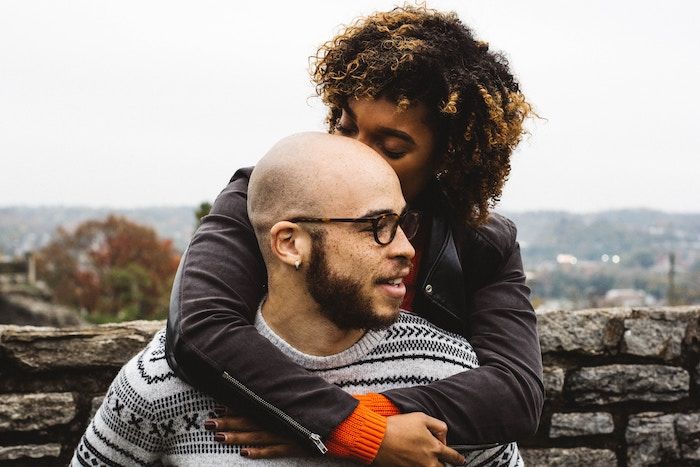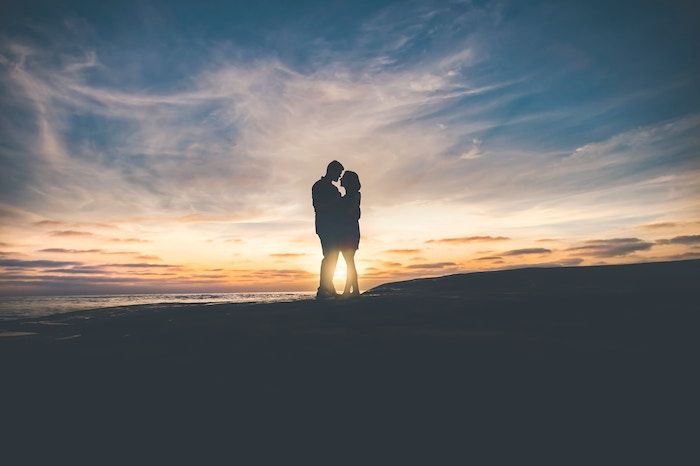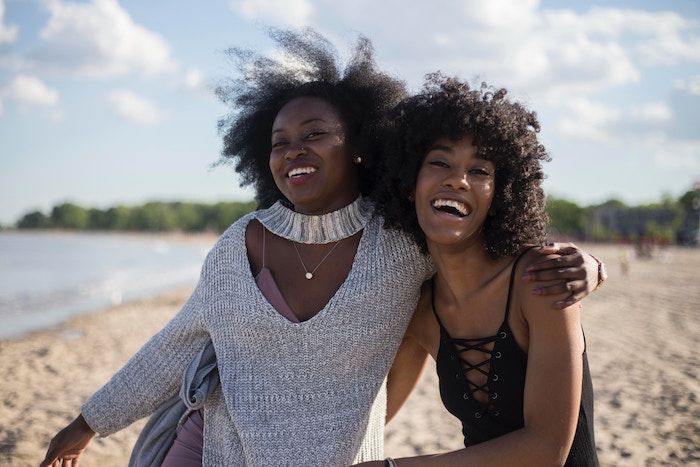When couples encounter problems in their relationship, they can sometimes spend years trying to figure out the root of the conflict – without success. When done correctly, couples counselling can strengthen the bonds. But, as our expert counsellor warns, be careful what you wish for
Couples counselling isn’t complex. Essentially, it’s a specialised kind of talking therapy where two people sit down with a counsellor to talk about the way they are relating. Typically, it’s for two people in a romantic relationship. However, it can also be used by any two people wanting to improve their relationship, such as two family members, or two business partners.
Couples counselling exists to help you see clearly what is currently happening in your relationship, to be clear about what you would like to be different, and to enable you to bridge the gap.
It’s dynamically different to one-to-one counselling because there are three people in the room, but it shares the same values: confidentiality, a code of ethics, and a focus on you and your needs. What it’s not about is the opinions or preferred outcomes of the counsellor.
What couples counselling does
In couples counselling, you gain new perspectives about each other and the way you relate, and you also learn new ways of being together. Couples counselling includes “skills work” to help you actually do something different, as well as helping you explore your feelings and thoughts with your partner. It has an appreciative focus as well as exploring difficulties, so be prepared to recall what you love and value about each other, and to look on your partner with kind eyes.
Couples counselling is not a place to avoid emotions. You need to decide what you are able and willing to change
What it doesn't do
Couples counselling isn’t a magic cure. It requires an investment of honesty, courage and humility. Often, couples come into counselling blaming one another for their difficulties. (It’s not unusual for couples to start arguing in front of the counsellor.)
Remember, couples counsellors are not passive. They will intervene to focus the session on insight and action. For you and your partner, this often involves letting go of fixed perspectives and stepping back to see the process of how you interact. Remember, couples counselling is not a place to avoid emotions; by exploring your feelings and finding different perspectives it helps you decide what you are able and willing to change.
Couples counsellors may well provide you with coaching. For example, they may help you learn to communicate differently, but what they will not do is give advice about life issues, or solve your problems. They are also not there to take sides. Rather, they will help you both to be heard.
Importantly, couples counselling is not appropriate where a relationship is abusive. If an abuse dynamic is identified, your counsellor will help you with onwards referrals to get the help you need, with safety as a priority.

The common problems
The most common issue is difficulties in communicating. As everybody knows, it’s easy over time to fall into unhelpful habits that mean we no longer hear what the other person is saying, and we become polarised in our own view of the world. That said, communication challenges can be a contributing factor, or a reflection of a number of issues couples bring into the room. These include:
- Affairs
- Betrayal
- Issues of trust
- Jealousy
- Financial issues
- Differing values and goals
- Differing parenting styles
- Wider family conflicts
- Life changes (empty nest, bereavement, illness, etc.)
- Sexual issues
- Emotional intimacy issues
- Work-related difficulties
- Gender role conflict
- Religion or politics
The job of your counsellor is to help you get underneath and around these problems to work out what it is that’s happening for you both. Beyond the issue in hand, you are in a process of relating with each other, and it is in exploring and evolving the way you interact that you can bring a difference to the way you resolve that issue.
Your counsellor may help you explore different dimensions of your fit as a couple, looking at where you are similar, and where you differ, and how you can come to play to strengths and appreciate your differences.
Examining your relationship
It may be useful to pay attention to different aspects of your relationship. For example, you can focus on:
- How you view the level of commitment to each other
- How you communicate
- How you connect and play together
- How you compromise
- How you resolve disputes
- How you nurture and care for yourselves and each other
- How you grow together
The overall process of couples counselling can be described as one of expression, joint discovery, sense-making and action-planning. The ideal outcome from counselling would be that you are equipped to do this together for yourselves in the future.
Sometimes, however, as a result of couples counselling, clients come to a decision to end their relationship. Counselling can then fulfil a role in helping the couple to end well, and to take care of issues that are important to you (for example, caring for children) in a mutually respectful and beneficial way.

It’s not all about you
Sometimes we can pull the wool over our own eyes, not wanting to really acknowledge what is happening. In couples counselling it’s hard to deceive yourself or the counsellor because not only is the way you relate there in the room being observed, but your partner may also say what they think and feel, shining a light into areas you find uncomfortable.
Couples counselling tends to progress more quickly than one-to-one work. It also tends to be more dynamic and challenging. My advice is to begin with the end in mind. If you have a good, strong reason for being in counselling then you are more likely to be open to exploring.
What happens in a couples counselling session?
In your first couples counselling session, your therapist is going to want to work with you to build an understanding of how you have arrived at this point. This involves asking questions about your relationship including how it began, how it has developed, and how you experience it now. It will also involve asking briefly about your wider families, your history of relationships before this current one, and getting a sense of the context in which you both live.
The counsellor is there to help you both express yourselves. They are not a mediator. Being open to change is the key
For example, the counsellor may ask about your support network, work, religion, age, education, culture and other factors. These may seem tangential issues, but they could be illuminating in understanding the differences between you and your partner, and in helping you understand the wider framework in which your difficulties sit.
Once you have shared your history, the key task of therapy is to agree clear outcomes you both want to work towards. Your counsellor is there to help you agree mutual goals, and their contract with you is to support you in achieving them. Goals provide a focus, and a way of recognising and measuring progress. Outcomes do evolve as therapy progresses, but having a sense of where you are going can help give a structure and a purpose to your work.
Depending on the issue, ongoing sessions are likely to involve:
- What works in the relationship
- The ways you appreciate each other
- Having equal space to express your thoughts and feelings
- How the past is impacting the present
- Contextual factors (family, faith, lifestyle, culture, etc.)
- What you'd like to commit to, not how you want your partner to change
- Learning new ways to communicate and navigate conflict
- Caring for yourself and each other
This is an ideal list. One size does not fit all, and the job of your counsellor is to make sure that your specific needs are recognised and met. Also, try to bear in mind that needs and wants are not always the same thing!
Sensitive subjects
Expect couples counselling sessions to be uncomfortable, and to go to places you may rather avoid. You are likely to be asked about sex, because it’s one of the places in a relationship that wider difficulties tend to be starkly reflected. Your counsellor will be seeking to make sure there are no “no-go” areas, and that you can safely bring up whatever you need to.
Like any therapy, the real work of couples counselling happens outside the room. Your counsellor is likely to give you exercises to go away and do, together or individually, between sessions. If you take time to reflect between sessions, and come with a view about how you can positively build on the progress made, and overcome the challenges revealed so far, you are much more likely to move forward as a couple. Seeing the therapy itself as “the answer”, on the basis of an hour a week of work, is not likely to be successful.
Be careful what you wish for...
When both you and your partner are still invested in the relationship, couples counselling can be very effective. However, be aware that it will have effects.
Having a third person observe and reflect back the dynamic of your relating to your partner changes things, and you can’t unlearn the things that you learn about yourself, or each other.
Things can often get worse before they get better. This is particularly evident in couples work. Be clear what it is you both want from couples counselling before you go, and focus on what matters most to you.

Communication breakdowns
Conflict is so often viewed as bad, and yet differences of opinions and emotions laid bare are the places where mutual understanding and growth can emerge.
Your counsellor is there to help you create a space where you can both speak freely, without being interrupted. What you say and what you hear may be challenging, but avoiding what is actually happening and what either of you really feel will get you nowhere fast. Again, remember that communication difficulties are a very common part of couples work.
It’s easy to judge ourselves by our intention, and others by their impact. When someone speaks, we process what they say through our own “filters” which have been constructed from our own attitudes, beliefs, values and context. We don’t hear what they mean, we hear what it means to us. Peeling back and exploring these aspects of ourselves is a key part of couples work. Once you understand how you hear what you hear, you will be open to change the way you listen.
Finally, it’s important to know that couples counselling is not able to solve deep individual issues that are impacting the relationship. Sometimes it is useful to pause or end the couples counselling to give one or both partners time to have individual support.
Above all, you must keep in mind that if your primary goal is to change your partner then couples counselling may not be for you. You will be encouraged to take responsibility for expressing your wants and needs, but that does not mean they will always be met. The counsellor is there to help you both express yourselves openly and respectfully. They are not an arbitrator or mediator. Being open to changing yourself is key to successful couples work.
Original article published: 21 November 2017. Updated 9 December 2019.


Comments